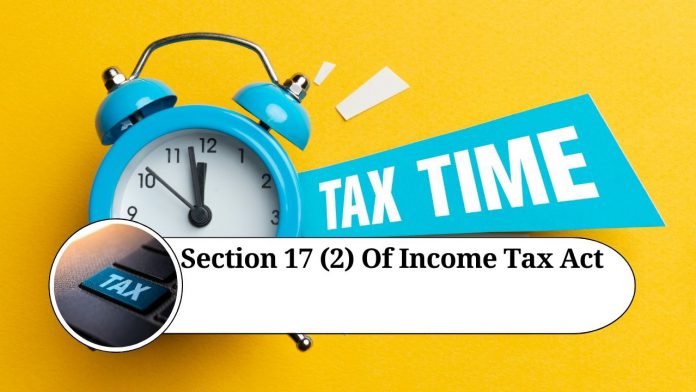The Indian Income Tax Act, 1961, contains several provisions that govern the taxation of income in India. One such provision is Section 17(2), which deals with the taxability of perquisites provided by an employer to its employees. In this article, we will take a closer look at Section 17(2) and understand its provisions and implications.
Overview of Section 17(2):
Section 17(2) of the Income Tax Act defines ‘perquisite’ as any payment, benefit or amenity provided by an employer to an employee in addition to their salary or wages. This may include things like housing, vehicles, loans, and even the value of free meals and beverages provided by the employer.
Perquisites can be either taxable or non-taxable, depending on the nature of the perquisite and its value. Under Section 17(2), certain types of perquisites are considered taxable and must be included in the employee’s income for the purposes of income tax.
Taxable Perquisites: The following perquisites are considered taxable under Section 17(2):
- Rent-free or concessional rent accommodation: If an employee is provided with rent-free or concessional rent accommodation by their employer, the value of the perquisite is taxable. The value of the perquisite is calculated as per the rules specified in the Income Tax Act.
- Vehicles provided for personal use: If an employee is provided with a vehicle by their employer for personal use, the value of the perquisite is taxable. The value of the perquisite is calculated based on the cost of the vehicle and its usage.
- Free or concessional tickets for private journeys: If an employee is provided with free or concessional tickets for private journeys by their employer, the value of the perquisite is taxable. The value of the perquisite is calculated based on the cost of the tickets.
- Club membership: If an employee is provided with a club membership by their employer, the value of the perquisite is taxable. The value of the perquisite is calculated based on the cost of the membership.
- Reimbursement of medical expenses: If an employee is reimbursed for medical expenses by their employer, the value of the perquisite is taxable. However, if the reimbursement is for medical treatment in a government hospital or dispensary, it is not taxable.
- Gifts: If an employee receives any gifts from their employer, the value of the perquisite is taxable. However, gifts worth up to Rs. 5,000 per year are exempt from tax.
- Interest-free or concessional loans: If an employee is provided with an interest-free or concessional loan by their employer, the value of the perquisite is taxable. However, if the loan is provided for medical treatment, it is not taxable.
Calculation of Taxable Perquisites:
The value of the taxable perquisites is calculated based on the rules specified in the Income Tax Act. For example, the value of rent-free or concessional rent accommodation is calculated as the difference between the rent payable by the employee and the rent actually paid by them. The value of vehicles provided for personal use is calculated based on the cost of the vehicle, its usage, and the distance traveled for personal use.
Conclusion:
Section 17(2) of the Income Tax Act is an important provision that governs the taxation of perquisites provided by an employer to an employee. As an employee, it is important to be aware of the tax implications of the perquisites provided by your employer. Similarly, as an employer, it is important to understand the rules and regulations governing the taxation of perquisites to ensure compliance with the Income Tax Act.
Read more useful content:



















